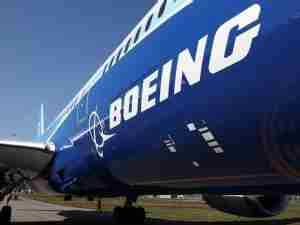Air carriers are feeling increasingly scorched by escalating fuel costs and security charges. With competition already hot, niche services are playing an ever important role in distinguishing services in a crowded industry where business chases after many of the same clients and trade lanes.
Take Lufthansa, for example. The German airline has long prided itself on its handling of valuables, many of which transit via its High Valuables Center at Frankfurt International Airport. Valuables handled here range from banknotes to jewels and diamonds; precious metals such as gold bars, gold dust, silver or platinum; traveler's checks; unsigned credit cards; high-value medicines; and art work.
The German Bundesbank had so much confidence in Lufthansa's service and facility that bank officials asked Lufthansa to handle the shipment of more than 40 tons euro banknotes just prior to their 2002 introduction in the European Union.
Lufthansa Cargo is one of two carriers worldwide that handles large amounts of banknotes.
Dirk Heil, manager of the Lufthansa High Valuables Center, describes the facility as a 'Fort Knox.'
'We are the crown jewel of Lufthansa Cargo's security system,' he states. 'We are one of the few carriers that specializes in the transporting of valuable goods. Everyone does it, but few specialize in it.
Valuable shipments are transported in armed vehicles to the airport where Lufthansa Cargo takes over responsibility by placing it in the Valuables Center this 'Fort Knox.' The facility, which is encased by a double wall, is impossible to be rammed by a truck. Those few employees who have clearance to go inside must pass through two sets of doors.
'To say the least, the facility is not seen by any Lufthansa employees apart from those working for Valuables Services,' Heil remarks. 'We enter one room, then enter through secure doors to the other. These are in place in case of an attack.
Throughout the facility are surveillance cameras as well as sensors. The center contains two very large vaults that reach seven stories down into the earth. For an airline, it is one of the world's largest.
The valuables are sealed in metal security containers that are reinforced by metal bars.
'You can jump on the box and it will not break or open,' he says.
The boxes are transported in armored vehicles to the aircraft on the apron. Lufthansa Cargo utilizes white security cars on the airport grounds to escort the shipment to the aircraft. The cars are used exclusively for this purpose.
'They will not leave the aircraft before the shipment is loaded and the airplane cargo door is locked,' Heil states.
In all situations, at least two people move the shipment. Official identification and legitimate papers are required by all those involved and for all shipments.
Prior to the aircraft's liftoff, customers are phoned to be alerted of the shipment.
LIFE SAVERS
Swiss WordCargo is also adept at handling valuables. Since its earliest days, Swiss civil aviation has enjoyed an enviable reputation for transporting valuable goods, money and confidential documents safely, securely and with a maximum of discretion. Swiss WorldCargo continues this tradition.
The carrier also prides itself on other niche products such as Swiss 'Celsius to transport drugs, cosmetics and electronic elements with as much speed in transportation, careful handling and controlled temperature as fresh fish, freshly cut flowers or dairy products.
'More than ever before, I see an increase in niche business -- especially for us,' states Bernd Maresch, Swiss WorldCargo spokesman. 'In fact, since many products and substances are temperature and time-sensitive, a damage due to prolonged transport times or to high or low temperatures would not only mean a loss of revenue, but could also cause serious harm to the reputation of the manufacturer and the distributor. Consequently, life science companies need to have reliable transport partners who are close at han








